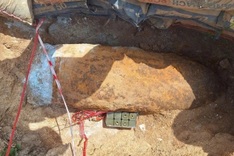
As a brokerage startup on the online-to-offline (O2O) property platform founded in April 2016, Rever aims to trigger change in real estate transactions in Vietnam with information provided visually, accurately, and conveniently. Co-Founder Mr. Phan Nhat Minh told VET that his team spent five months on development before officially entering the market. “We aim to be the market leader in brokerage and marketing services in the real estate sector,” he said.
New kid on the block
Tech companies in the field of real estate are divided into distinct groups. The group with information listings includes batdongsan.com.vn, homedy.vn, and Chotot.vn, while the data provision group includes gachvang.com, datafirst and others. Rever, meanwhile, is the only tech company in the brokerage real estate group. It was founded on the idea of using the tech platform to help Vietnamese internet users have more options when leasing or selling real estate.
Rever also provides marketing services and management systems for real estate developers, from consulting on and the implementation of digital marketing to providing innovative marketing products such as 3D virtual desktops and transaction management platforms on cloud computing. It has been a pioneer in using 3D technology to introduce housing to potential customers, helping them gain a realistic perspective of a project without actually having to physically go and look.
Buyers on Rever’s website can easily find the smallest of details about a property, such as its exact location (shown on a map), total area, number of rooms, nearby facilities, and even the surrounding area, via street view. With the ability to connect those interested with live 3D data recorded by the system, users save time and transaction costs.
There are some issues to iron out, however. Forty-seven-year-old office worker Ms. Nguyen Thi Nga said she planned to buy an apartment for under VND2 billion ($88,000) for her daughter. “I joined Rever.vn because it provided 3D views of projects, but after choosing an apartment I was then unable to view the 3D image,” she said. “If this is a strength of Rever, it needs to be updated more often.” Mr. Minh explained that Rever offers the 3D scan service to homeowners who want to sell or rent their properties and they decide whether to accept it or not. “Not all homeowners allow us to supply this technology for their properties,” he said.
Rever also has a great deal of transactional data and a platform for analyzing it, giving customers a better view of the market overall. Through data-driven systems, buyers and Rever’s staff can connect to each other in sales and in-depth consultations.
The company has also opened transaction offices to introduce products of developers. Staff at these offices receive information on properties and gauge demand among customers, which is put into the system and analyzed to provide appropriate advice.
Rever has two main types of business. The first is brokerage services for primary, secondary and rental apartments, which accounts for more than 50 per cent of total revenue, while the second is providing services and solutions to real estate developers.
Mr. Minh said that the standardization of sales methods in technology is a key factor Rever has spent time researching over the past two years. “This will benefit customers, such as better, faster and more transparent services,” he explained.
Future plans
Rever now has more than 100,000 leads on its system, with more than 10,000 daily visitors to the website and the Rever smartphone app. It has brokered more than 600 deals since the beginning of last year, employs 150 people, and has offices in Districts 1, 2, 4 and 7 and Binh Thanh district in Ho Chi Minh City. From its first office in Ho Chi Minh City’s District 2, it plans to expand to 14 locations in the city with 200 qualified staff. It has targeted revenue of VND90 billion ($4 million) for this year, with a goal of recording 1,500 successful transactions.
Those searching for real estate online are getting younger, meaning real estate tech businesses have the opportunity to change their business model, from providing information to buying and selling on mobile apps. According to data from batdongsan.com.vn, approximately half of those who visited online channels in 2017 were between 25 and 34 years old, while five years ago the majority were 30 to 40 years old. Mr. Minh also believes that future homebuyers will primarily be the younger generation, who are familiar with technology and prefer to save time by seeing a 3D perspective online.
Rever will need to focus on quarterly targets, he said, closely monitor the effectiveness of projects, and quickly react to market movements. He also revealed it will invest more heavily in tech platforms such as data analysis and customer interaction systems and build a training system in real estate brokerage - Rever Academy.
As with all startups, Rever has faced its share of challenges. “It’s very difficult to take traditional real estate brokerage in a new direction,” Mr. Minh said. Rever is the only tech company in brokerage real estate but the potential of the real estate market is sure to result in greater competition. As a relative newcomer, Rever is yet to be as well-known as other tech companies in real estate and has also only launched in Ho Chi Minh City, while Hanoi also holds potential. “Rever has gone through many human resources, which influences trust in the market, but I believe in its future effectiveness,” he said.




















